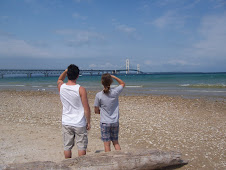March is Brain Injury Awareness
Month. Recovery from traumatic brain
injury is a long and winding road.
Citing statistics is definitely eye-opening. An excerpt from my unpublished book, The
Forever Journey, divulges how TBI affects more than just the survivor.
Two Weeks Post-Accident
We’d
like to try and sit Jonathan up,” Mary Beth, the speech therapist announced as
she pulled the privacy curtain that hung around Jonathan’s bed shut. Her long dark hair, streaked with a touch of
gray was piled behind her head in a bun.
No white coat or stethoscope around her neck – just a gray turtleneck
sweater which held her hospital badge – distinguishing her from a hospital
visitor. Randy, the physical therapist
who escorted us from the ER to the Neurosciences wing two weeks before, stood
by her side.
“I
don’t want to watch,” Dennis mumbled to me as he sidestepped back into the
family room, leaving me to fly solo. I
let him play chicken, even though I was as afraid as he was.
“Sit
him up? Really?” I couldn't believe my ears. My knees quivered at the thought of Jonathan
sitting up. He was barely awake. How
could he even hold himself up?
“Can I stay and watch?” The words tumbled out
of my mouth without my permission.
“Of
course.”
“I’ll
just stay back here.” I stepped away
from the bed, slithering back through the slit in the curtain.
I
took a deep breath. What if he couldn't sit? Then what? What if he didn't have any muscle
control? I still didn't want to
watch. In spite of my fear, I pulled
back the curtain and peeked inside.
“Jonathan,”
Mary Beth’s calm voice caressed the room as she gently shook his shoulder to
wake him. “Jonathan, its Mary Beth. Randy and I are here to try and sit you up
today.”
Randy stood by her side, ready to help. Even though he wasn't any taller than Mary
Beth, he wore the muscles in this pair of therapists.
I could tell they were a veteran team. Randy turned Jonathan onto his side. Mary Beth pulled his feet over the edge of
the bed. Then Randy wrapped his right
arm behind Jonathan’s back. Mary Beth
brought her left arm behind Jonathan’s head and neck. With their free arms, they slowly lifted
Jonathan, while never letting go of the support they had on him.
“Okay,
let’s get him into a semi-sitting position,” Mary Beth directed.
The
clock on the wall ticked away, thirty, then forty-five horribly long
seconds. The slow-motion moment in my
life was taking forever. Jonathan didn't even look awake to me.
And
then they stopped.
I
guess that was what they called
sitting up.
Jonathan’s
eyes were dark and blank, stuck in time.
With brain injury drunkenness, his head hung down as he stared at his
knees. I fought back the tears that
began to percolate. With the clock
ticking on, the terror was boiling over and ready to spill out of my
mouth. I whipped the curtain shut and
ran back to the family room.
My
aunt had arrived for a visit - she stood in the doorway talking to Dennis. I grabbed her and wrapped my arms around her.
“Oh
my God, they just sat him up. He can’t
even hold up his head,” I said between sobs, my head buried in her sleeve.
Aunt
Jean pulled me close to her and hugged me with both arms. We sank down into the chairs.
“I
can’t see him in there.” I ground my
foot into the carpet. “I can’t see
anything in his eyes.” The tears rolled
down my face. “Oh God, I’m looking at
him but he’s not looking back at me.
He’s not in there.” I cradled my
head in my hand, my face dripping wet.
“I could see right through him.”
I
looked up at Aunt Jean, barely able to make out the outline of her face through
my tears, “What if this is all I ever have?
What if he never comes back to me?”
Mary
Beth returned to the family waiting room.
“Mary
Beth, I couldn't watch any more. It was
horrible seeing him like that. I guess
we just don’t know what to expect.”
“Hasn't anyone talked to you about this yet?”
Mary Beth asked, with a look of surprise written all over her face.
“No. And I've been reading the pamphlet you gave
me about brain injury, and now I’m more confused than ever.”
“I’ll
get Jonathan’s file. I’ll meet you in
the conference room next to the therapy area,” she said.
“Okay.”
Dennis
and I each took a wheeled gray padded desk chair and rolled up to the dark
brown Formica conference table. The
hospital smoke stacks were peeking up over the window sill, billowing out white
puffs of steam on the cold winter day. An
aroma of fresh-brewed coffee wafted across the small coffee maker stand toward
my nose. As the rest of the world went
about their daily routines, Dennis and I were still moving at a snail’s pace,
all but stuck in time.
Mary
Beth plopped Jonathan’s three-inch thick, week-and-a-half old hospital chart
onto the table and pulled up a chair next to me. Flipping through the pages like only a
veteran therapist who has read many medical files could, her finger quickly
slid across and down the typed pages as her eyes scanned back and forth for
various notes and test results.
“I
can’t believe no one has talked to you about this yet,” she sheepishly
admitted.
I
shrugged my shoulders. We’d had so much
information thrown at us that first week, but no one really took the time to
actually talk to us about it. The
pamphlets had piled up alongside the card box in the family room, glanced at,
but unread.
“Brain
injury is more than just a bleed in the brain.
It’s brain damage. Inside
Jonathan’s head are damaged neurons.
Some might be stretched. They’ll
probably repair themselves. Some might be torn.
Those won’t come back.”
My
heart hammered my ribs. My stomach
writhed and churned as the fear of the unknown waved itself in front of my
eyes. Oh God, I didn't want Jonathan to
have a damaged brain. I didn’t want him
to never be able to finish college, or get a job. I didn't want him to be in a wheelchair or
dependent on us for the rest of his life.
I closed my eyes as tight as I could to try and blink away the horrible
thoughts that were filling my head.
“Other neurons in the brain compensate for the
damaged ones. The pathways in the brain
will be re-routed,” Mary Beth explained.
“Think of traveling down the highway in your car. Ahead there is a bridge that is out. What do you have to do to get to your
destination? You have to find another
route.”
I
imagined the impulses in Jonathan’s brain struggling to find their way, with
little red warning lights flashing inside his head as the neurons collided with
each other. The reality of Mary Beth’s
words sunk deep into my heart. I didn't
want to hear any more. But she went on.
“This
is what happens in your brain. The
message can’t get through on the neuron highway so it has to find an alternate
route. This detour takes extra time,
making the brain slower at processing information. This may improve after time, as the
connections re-wire themselves – but it’s too soon to tell how much Jonathan
will improve.”
I
swallowed, forcing Mary Beth’s words down my throat as I looked at her with my
glassy, somber eyes. Before that, I
hadn't really even allowed myself to think that Jonathan might not fully
recover - eventually.
“Now,
the one thing we are concerned about is the fact that Jonathan is coming out of
his coma but still not speaking,” Mary Beth pointed out.
“He
doesn't speak very much even without a brain injury,” I defended. “He’s very shy. When he was in preschool, he couldn't even
get up enough courage to tell the teacher he had to use the bathroom,” I
offered, hoping this tidbit of information would seal her concerns away
forever.
Her
soft-spoken voice suddenly felt reassuring.
“Tell
me more about Jonathan before his brain injury.”
“He’s
in college – his junior year,” I began.
“Is
he a good student?”
“Yes,
very good. He’s a smart kid.” The gloom was lifting.
“That’s
great to hear. Studies have shown that
TBI survivors who did well in school often recover more fully,” Mary Beth
pointed out positively. “How about your
family? You've been here for almost two
weeks by his side. It seems to me that
Jonathan has a good family support system.”
To
her it was a support system – to Dennis and I, it was just what you did without question.
“All
of these factors can greatly influence the level of recovery a brain injured
patient attains. Like I said, we don’t
know yet which areas in his brain have permanent damage and which areas will
repair them self.”
“When
will we know?” I glanced at Mary Ann, and then Dennis. Our eyes met as fear welded our gaze together.
“I’ll
tell you this. You will hear some doctors say at six months – or a year – where
you’re at then is what you get. But
that’s pretty grim. Doctors are usually
too pessimistic. You won’t find this
written in a medical book, but I can tell you that I've seen recovery even
after ten or more years.”
Dennis
and I were left alone in the conference room after Mary Beth had gone. As I leaned back into the chair it suddenly
felt hard and bitter against my back.
The aroma of coffee was abruptly stagnant.
“I
just hate this,” I said.
“Me
too,” Dennis replied.
“Every
night when I go to sleep I pray and pray that the next day will be better. That Jonathan will heal. That we can get through this. And in the morning when I wake up, for a
split second I forget that we’re here and that Jonathan is here. But then I remember.”
“You
just have to deal with it,” Dennis said.
“There’s nothing you can do about it.”
Dennis’
words stung. But he was right.

